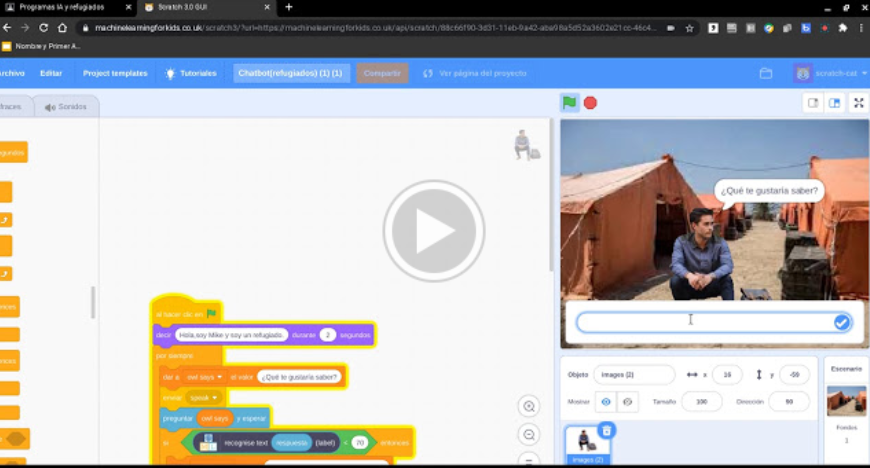Artificial Intelligence (AI) aims for systems to be able to solve problems and interact with their environment the same way humans. It goes so far as aiming to emulate humans. Despite the multiple advantages and advances this entails, some studies have shown that there exists AI that behaves in racist and sexist ways (UN News, AI biases, Tay, the racist robot). For International Migrants Day, we worked on the topic of AI and we created two projects using the Machine Learning for Kids programme, within the Programming and Robotics Workshop of Joaquín Romera Institute of Mendavia (Navarra). We designed two programs: Chatbot, in which the user can ask about refugees’ and migrants’ issues and the bot will answer them based on the questions entered; and Stereotypes and AI, in which a character changes expression depending on what is said to them (positive or negative expressions).
La Inteligencia Artificial en el Día Internacional de las Personas Migrantes
La Inteligencia Artificial ( IA ) pretende que los sistemas sean capaces de resolver problemas e interactuar con el entorno del mismo modo que los seres humanos, e incluso que lleguen a emular a los humanos. A pesar de las múltiples ventajas y avances que está suponiendo, algunos estudios han demostrado que hay IA que se comporta de manera racista y sexista ( Noticias ONU, sesgos de la IA, Tay, la robot racista ) Para celebrar el Día Internacional de las Personas Migrantes, en Taller de Programación y Robótica del Instituto Joaquín Romera de Medavia (Navarra) hemos trabajado el tema de la IA y creado dos proyectos con el programa Machine Learning for Kids. Hemos diseñado dos programas: Chatbot, en el que el usuario puede preguntar sobre el tema de refugiados y migrantes y el bot le contestará en función de las preguntas introducidas. Y el programa Estereotipos e IA, en el que un personaje cambia de expresión en función de lo que se le diga (expresiones positivas o negativas).

